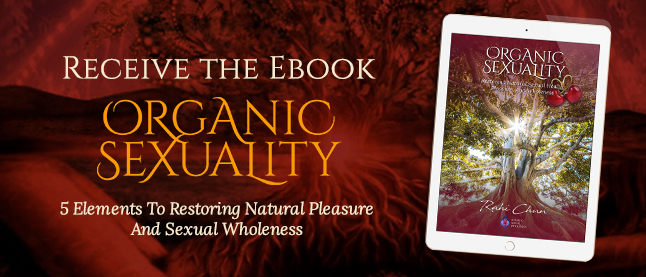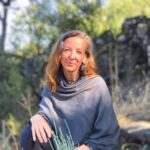
How to Reclaim and Restore Embodied Sexual Pleasure, Intimacy and Wholeness After Sexual Abuse.
Share this episode:
Violet and I met several years ago through a close mutual friend who knew of both of our life’s work and purpose and was excited how much our endeavors had in common. Since then, we’ve become friends and colleagues sharing support and expertise for each other, both personally and professionally. I have admired not only how Violet has masterfully guided her own journey of embodied sexual and pleasure reclamation for herself, but her wisdom and expertise in gracefully and powerfully guiding this journey for her Queen clients. It’s been a joy to experience our friendship expand over the years and to witness her and Jason’s beautiful partnership evolve into a growing family with their magnificent Ruby.
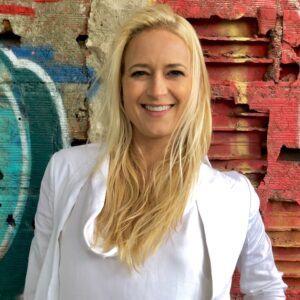
Today’s Guest:
Violet Lange is a devoted mama, ice cream afficionado, and expert in dating, intimacy, and relationships. She helps successful, spiritual women attract and create healthy, lasting love. As a survivor of sexual abuse, she champions women connecting with their bodies, sensuality, and pleasure. Violet Lange’s Pleasure Path podcast highlights the variety of ways we can feel good, even while doing deep healing. Violet has her MBA from Harvard Business School, training from Coach Training Alliance, and is a 500 hour certified Yoga Teacher as well as Reiki Master. She offers complimentary consults at www.violetlange.com/talk
We explore:
“Learning to trust my body meant paying attention to my body sensations – trusting my body’s Yeses and No’s…. when I didn’t do that, I would get triggered, I would shut down, I would get very dry vaginally – not be able to really feel any lubrication or pleasure.”
How learning to be present with her sensations, rather than chronically “doing” as a coping mechanism to avoid feeling was a key shift in Violet’s journey of reclaiming her body’s pleasure.
How repressed memories of past violations can return when the nervous system is feeling resourced and safe enough within one’s body and with the support of trusted relationship/s.
How wired associations of past abuse with specific sensations – an image, smell, or touch of a particular body part, can trigger a reflexive self-protective muscular guarding, emotions, or dissociation – until the wiring is recognized and uncoupled.
How a turning point in Violet’s sexual reclamation journey involved surrendering to the wisdom of her Body’s Center/Hara – which kept her from boarding a plane to meet someone her body knew was not good for her, despite her mind’s rationale.
How the Jade Egg practice can be instrumental in reclaiming sensation, sensitivity, pleasure and awareness, and how first uncoupling the genitalia with unpleasant past events may be a pre-requisite.
Violet shares her journey of choosing to face her perpetrator, how it was the most difficult experience of her life, and how she wouldn’t have done it any other way.
How Violet’s physiology changed and she found her inner protective Mama Bear as a result of confronting her perpetrator and protecting & standing up for her younger aspects.
How as Violet exemplifies through her sexual reclamation journey and now shares through her body of work: “When we follow our pleasure, we find our power.”
Rahi: Welcome to Organic Sexuality, where we explore the restoration of pleasure, the reclamation of sexual sovereignty and the realization of our embodied sexual nature. An invitation to honor the pleasures of your body by embodying the pleasures of your nature. I'm your host, Rahi Chun. I'm a certified somatic sex educator, sexological bodyworker, and creator of Somatic Sexual Wholeness. Rahi: Today we invite Violet Lange to the podcast. An expert in dating, intimacy, and relationships and creator of the Pleasure Path, Violet guides and supports women to reclaim the pleasure path in their lives by restoring their sexual nature, embodiment, and sovereignty, as she has done in her own life as a survivor of sexual abuse. If you are a survivor of sexual abuse, please be advised that we will be discussing sensitive material and to support yourself by listening with a trusted friend, or in a space in time where you can feel supported and grounded in your body. Rahi: I'm really, really happy and delighted and thrilled to be inviting Violet Lange to our show today. Um, there are many things I can share about Violet because I've known her for years, both as a colleague and as a friend. I feel like the work that she's doing in the world is so needed and so extraordinary. She holds a sacred space for women, to become the Queens that that women can be. She is an expert in love, dating and relationships - I would also add to that she's an expert in the journey of reclaiming and restoring ones powerful embodied sexuality and pleasure, because she's gone through that journey herself, and now she's holding that space for others. Violet, thank you so much for being with us today. Violet: Thank you, Rahi. I'm delighted. I really appreciate the work you do in the world, and I'm grateful to be part of your offerings. Rahi: Awesome. Violet, there's so much we can cover, including your work, which I'd love to get to. I really think it's so powerful and empowering for listeners to hear the inner journey that takes place as one is going through healing from past abuses and getting to a place of really taking ownership, really reclaiming ownership of their embodied sensations, arousal and pleasure. From the outer perspective, I think it's easy for people to see kind of your evolution going from like Harvard MBA, corporate world in New York, to the yoga world, being program director for Yoga Works to now being a love and relationship guide and coach. I would love to explore more the inner journey that you've taken with the intention of empowering listeners who may be in relationship with someone who's endured and has survived from sexual abuse, or who's gone through it. If you can share some of the elements of your experiences that you have overcome and what you feel like some of the key turning points were for you on that journey, Violet: I would love to share. And of course there's many moments and it's a journey. So I think it's helpful as your listeners I'm sure know, to set aside any outcome or agenda, like when you're going through this process. So, one of the shifts was learning "to be" instead of "do" which I'm still learning. And I feel like we're all learning, but I learned that from my Reiki teacher. So it wasn't related to sexuality directly, but it did impact like how I was showing up for my healing journey is focusing on how I was being and what my sensations were in being present versus on what I was doing because I was getting and had been very addicted to activity. And I think that's a coping mechanism. It's a way to numb out from what our body's saying to be so focused on our to-do list or so focused on what, what other people think. Violet: So being, and paying attention and then learning to trust myself. There's a lot that happened when I was younger being sexually abused when I was young that I didn't know what it meant to trust myself, because I thought, well, I must have created this experience or I must have wanted it, or I must have done something for this to happen. And you can't fathom when you're young, someone of power kind of taking that from you or going through that experience. And so it's almost like my mind kind of had a story that I couldn't trust myself - that I was bad and I internalized the thing that had happened. And so learning to trust myself, meant learning to trust my body. And if my body said no, then that was actually a no, because a lot of times I got into, I shouldn't say problems. Violet: I had challenges in my relationships sexually where at the beginning, things would be great. There'd be passion and chemistry. And then the closer that we got in our emotional and other intimacy, the more that I would withdraw and dissociate from the relationship and from sex, because the closeness started to mirror the closeness of my family relationship, where the abuse had happened. And so learning to trust my body meant paying attention to my body sensations, trusting my body's yeses and nos. When I didn't do that, I would get triggered. I would shut down. I would get very dry vaginally, like not be able to really, um, feel any sort of lubrication or pleasure. And then I would sometimes push the other person away physically or energetically. And so the root of it was learning to trust myself, learning to pay attention to my body and getting out of performance mode. Cause part of this doing all the time was also "doing sex" as if like, Oh, if I do it mechanically, right and my partner gets an orgasm, then I'm safe. Then they don't have to realize that there's something wrong with me. Rahi: Hmm. Wow. There's so many really important points that you shared there. The thing that stands out the most is just recognizing that when a young body does have an outer agenda, evasive boundary-breaching agenda imposed onto it, it does naturally shut down. And so feeling one's intuition feeling and really listening accurately for one's authentic yes or no becomes, can become a challenge. Violet: Hmm. Definitely. I remember feeling confused often of what was okay. What wasn't okay. Um, what was my pleasure? What was their pleasure? I think I spent most of my twenties having sex that was sometimes enjoyable, sometimes not, and I didn't actually have that much sex in my first marriage. It was almost a sexless marriage because of some of these challenges and issues. But I think I had defined good sex as the other person is happy. The other person has an orgasm. The other person thinks I'm good at sex versus like, what is my body telling me? Is this something that I like, is this opening or closing me, can I ask for what I want and need? Do I even know what that would feel like to feel safe enough to do that? Rahi: Yeah. Those are such profound shifts that happened later on it sounds like for you, but you know, I feel like what your speaking to, as far as assessing the success quote, unquote of a sexual intimate encounter speaks to that, that doing mentality that, that doing this, which also speaks to just what you alluded to at the beginning that your Reiki teacher or engaging in Reiki taught you, the difference between doing and being and whether the focus is outer or the focus can be really inner. Yeah. That must've been such a profound game changer for you. I mean, given how driven you were on doing. I'd love to like, how did you or your path come across Reiki and what was that like? It must have been kind of, I dunno, what was that transition like for you? Violet: I was introduced to my Reiki teacher really serendipitously. I was working at YogaWorks at the time and was walking my dog and I saw her, I didn't know she was in her car at the time, but I saw a sign on her car that said Sacred Ventures. And then I struck it struck something in me and I looked up and we made eye contact. So she was sitting in her car and I found her website later. And I think I had thought sacred ventures was like a business venture or like retreats or something, but it was all about the inner world. And I had never heard of Reiki before, but I reached out to her and, and then I had a session or two, and then I decided to learn more and take some of her trainings, but it feels like to me, it was a safe way to access energy and presence and being in touch with what I was feeling and noticing in my body intuitively without it having to be explicitly sexual. Violet: Although I knew that I had issues with sexuality, when I, when I found her, I actually, I can't remember if it was right before or right after it was very closely entwined with when I had my first actual memories because I had suppressed a lot of this. So I didn't realize I was so sexually shut down until some of the memories started coming back. In hindsight. I can see like, wow, I really had some issues, but I don't think I was able to, to be aware of where they stemmed from until later, which was around the same time that I found Reiki. Rahi: So it sounds like whether it was facilitated by this - going direction inward, or more deeply nourished, you know, if the memories came back right before, the timing of it was really, really fortuitous. Violet: And I just want to say one other thing, which is that I don't know your thoughts on this. I'd be curious, but I feel like our nervous system, our body, our environment, when we're ready for healing, the healing comes. So if anyone's listening and thinking, Oh, do I have suppressed memories or does my partner, you know, maybe you don't, but your body will... sorry, my dog is barking... Your body will, your body will tell you things that are going on, what your sensations are and you don't have to be afraid of like something waiting to come up. Like it's, it comes. Anything will come up at the perfect time when you have the right ecosystem and intuition to manage it and deal with it. Rahi: Yeah, I completely agree. I mean, the way I've looked at it is when there is enough resourcing or safety within the nervous system or around the nervous system at that point, the memories - it's like the psyche knows what it can handle, you know, the memories coming back. And so what often happens, or what I see a lot is when someone gets into a safer relationship or an emotional dynamic that feels safer then blacked out memories can start returning. And what can be very confusing sometimes is the person may be triggered by their current safe relationship, when in fact, it's old memories or old wounds coming to the surface to be addressed, and they're only coming up because of that sense of safety in the dynamic. Violet: Exactly. That's been my experience too, is sometimes I would get triggered during intimacy and you think like, Oh my God, what's wrong with me? Or, you know, is this because of my partner, but it's to your point, just because there's safety where something can finally come up and the current trigger isn't necessarily created by the partner, they're just holding space for it to be managed or healed in a different way. Rahi: Well, you mentioned earlier Violet, how you recognize the pattern of relationships in your twenties, where things got hot and heavy in the beginning, and then when it got to a place where it edged into an intimacy that reminded you of some family intimate dynamics, that's when the shut down would happen. Um, you know, Violet, I think it would be so instructive for listeners to recognize how this past wounding can show up during sexuality, during sexual intimacy. For you, when that happened, when you were getting close to feeling vulnerable and intimate, would you dissociate? Would your body just.. You mentioned pushing away energetically or sometimes physically. And what were some of the ways that it showed up? Violet: A lot of it was like you said, kind of pushing away. I remember my first boyfriend in high school would sometimes, you know, try to put his hands up my skirt. And sometimes that would be welcomed, but sometimes it's like, my body would freeze and I would just push his hands away. And he would say things like, Oh, I wish you didn't do that. Or I feel disrespected or that you don't want me when that happens. And he was actually very emotionally healthy, but I didn't at the time, know why I was doing that. I think because I grew up in a Christian household, there was also like the, well, you know, sex is dirty, and like, I shouldn't be doing this, but it was layered with the religious trauma, but also the sexual trauma from my childhood. And so that was a clear thing that happened sometimes is the pushing away and the, almost the shaming of the other person sometimes, because I couldn't explain why it was happening. Violet: It would be, I would feel bad and then I would maybe make them feel bad. And then in my marriage, I got married when I was 22 and we were married until 27, but pretty much the second year of our marriage, we just really stopped having sex - stopped having any intimacy. And even before then, it wasn't, it wasn't very frequent. So we both, I think had made this pact that we were just not going to have sex and not really talk about it. And the internal awareness was feeling queasy and feeling slimy and wanting to get away, which is, I think why it would push, push away is because it just felt, it felt nauseating. And then it also would feel a bit like I was spinning like my, um, my sense of vertigo or my sense of balance was kind of going, going away. Violet: And then if I didn't push someone away after the nausea or the spinning, then I would dissociate. Then I would just check out and the story I would tell myself is like, well, this is just what sex is, the guy, you know, pounds and pounds, you, for lack of better word, you know, like it's that porn star sex of just quick, rapid hard penetration. And you just take it. And so, you know, you think about other things, you just kind of check out, but then unfortunately it would get to the point in the relationship where I had betrayed myself and abandoned myself so many times that I couldn't keep myself coherent in the relationship and stay in the relationship. So instead of addressing the sexual issue, I would leave the relationship. So I would date someone - or they would leave, you know, so I would date someone for three months and then I would just be like, no, I don't want to date you anymore. Violet: But it's because the sex represented all of these things that I couldn't break through, or someone would date me for like six weeks or three months, a very short time. It was always less than three months. And they would then break up with me. And in hindsight, I think I know why - that they couldn't feel my presence. I wasn't vulnerable. And I would get kind of passive aggressive with them. You know, I would make little jokes or little jabs. And I think it was my way of trying to assert some sort of power or some sort of control, despite all this stuff happening under the surface, which I can really only give name to now after going through all of this. But yes, to me, it showed up as all of these sensations as certain environmental triggers for me, like around 11 o'clock at night with soft lighting was always a trigger. Um, because it reminded me of like a nightlight and I think that's when things would happen. Um, so there were certain environmental ones, but then there was also just internal ones that were regardless of the time or the environment, Rahi: What you're speaking to is also so important. And that's to recognize that there are, you know, really powerful associations and wiring that occurs when one is abused, especially as a child, you know, 11 o'clock, soft lighting, for example, for some people, it just could seem really bizarre, but it's actually, you know, it could be, you know, the wallpaper of the child's bedroom and something reminding you of that wallpaper when you're at an adult can shut you down. And it can be very confusing to both people, but also the nausea that you described again, the body remembers everything. And it sounds like the experiences of that abuse would come up to, you know, your tissues were being reminded of that abuse. So this was all I'm sorry, were you going to say something, Violet: I want to say one other thing, which is, as you were talking about the tissues of the body, remembering on the right side of my body, I don't know what muscle it is - you probably would. Um, one of the deeper tissue, abdominal muscles on the right side of my body, like below my belly button, towards my pelvis, that was always so sensitive. I remember like if anyone would touch that I would flinch, I would just kind of curl up and, or I would get really ticklish and start laughing, but feel kind of gross inside at the same time. So there's definitely like a muscular pattern. And I think it's only been in the last few years, it was later in my healing journey that that started to go away. That sense of, of tickling, but even now, with Jason, with my husband, sometimes I have to be more mindful or pay more attention to my body if there's like, if he's using his fingers versus if there's intercourse with penetration, because the way that I was sexually abused was primarily with fingers. And so, you know, there is a way that my body kind of used to tense or used to have this flicker of self protection and then laugh, trying to laugh it away. That, that I just remembered when you were saying that Rahi: Yeah, that's really, really instructive. You know, there are so many defense responses that we come up with and laughter can be a common one, but also that the body does remember. I mean, I'm wondering, do you think it might've been the psoas muscle? Violet: Probably. Yeah. As you were saying that, because it's kind of above the hip bone. Um, yes, I think that's, I think that's probably what it was. Rahi: So the psoas muscle, the Tibetans refer it to as the muscle of the soul, because it does remember all of our traumas and our unintegrated emotions. So all of what you're describing now, Violet was before the memory before you started working with the Reiki teacher and before the memory came back, I'm guessing that when the memory came back and as they continue to integrate, like so much of your past behavior just made so much sense to you. Violet: Definitely. I think it took a while for me to open up about it and believe myself. And unfortunately, the first person that I told was my boyfriend at the time. And I thought it was going to be helpful to tell him because we had had some of these encounters. I mean, I can just remember it so viscerally where I could tell I didn't really want to have sex, but he did. And so I said, yes, and then I would get triggered and I would push him away. And he would say, what's wrong with you? Why don't you like sex or what the F is wrong with you? And then it would just be this compounding of shame. So then I thought, Oh, I don't want to be that girl who doesn't want sex. So I'm going to say yes more often, but of course, the more often I said yes, then the more I would get triggered. Violet: And it was just this vicious pattern, even though in some ways he was safe and it was safe enough for me to, to kind of kinesthetically for these things to come up. And then I would, I had a memory the first time, actually in Shavasana doing yoga and in Shavasana, all of these memories came back and I told my partner at the time and he said, Oh, I think you're crazy. You're making that up like that wouldn't have happened. And he had a lot of judgment about it. So I kind of pushed it back down for a little while, which of course didn't help. But then once I actually knew that this is my journey, this is my truth. This is my body. And also once I started to get professional help beyond, I mean, I don't want to discount yoga or other things. I think they're great healing modalities, but I imagine you would agree that it doesn't take the place of working with someone specifically on somatic therapy or like you do sexological bodywork or Yoni egg practices with a mentor. Like this is not something I would recommend anyone try to work through on their own because it happens in relationship and it needs to be healed in relationship Rahi: That's yeah, I can't underscore that enough. It is a relational dynamic that needs to be repaired within a relational dynamic. And I mean, again, not to discount all of the wonderful and important and essential self honoring embodied practices, especially the Jade egg practice, you know, amongst others critical really, really great. And yeah, it's almost like because the trauma happened in a relational dynamic, it needs to be restored or rewritten within a relational dynamic. Um, you know, where one is where one feels safe and empowered. You know, when I was on your site, I read the story about - I'll just call it the airport because it was such a, I mean, it was so cinematic. Right? I love that story because it is, I mean, I think we've all been there where a plane's about to leave. Do we go get on it? Do we not? Everything our body is saying one thing, but the rationale is like screaming something else. And you made like this, you know, this choice to honor yourself and to honor your body and to honor your wellbeing. Was that like a turning point for you in your reclamation? Because it seemed that way when I read it. Violet: Yeah. And so I'm glad you brought that up because there's so many turning points that I, I forgot to mention that one, but that was, that was pivotal. I think that was in 2013. I can't remember exactly, but I had been dating someone who was not a safe person. Um, I think there was the illusion that it could be safe because there was some familiarity, you know, how we think that someone is safe because we know them or we've known them from the past or, or something. Um, because our friends know them, but this is just for anyone that's, you know, dating or thinking about entering partnership. Like, just because they're in your friend circle or just because you've known them for awhile doesn't, it doesn't replace the felt sense of being around them. And what happens with your body when you're around them? Violet: A lot of times my clients will talk about who they are looking for and it's resume, things versus an internal awareness of how you are with someone. But with it, with that story, I had been seeing this person for about six weeks, but we had known each other for longer. They lived in, uh, in a different part of the country and they wanted me to meet them in New York city. And I had, I can't remember all the details, but I had heard that they had, I can't remember the sequencing, but my body was basically a no, even though my head was like, Oh, come on, you should just go. So I had booked my plane ticket. I was literally in the airport. I had this little red suitcase and i was flying Virgin America. And they were calling for the Gates and saying, you know, calling for the seats, they even called my name and I just pretended it wasn't me. Violet: And then I just could not get myself to get on that plane. And I think in hindsight, you know, or had that happened two or three or five years sooner, I would have definitely gotten on the plane. And then it would have created all of this emotional and physical drama and trauma really retraumatizing myself. But I got into a place I can feel it in - It's kind of like my Hara or the Tan Tien. And like in between the second and third chakra where it could not be moved. It was like this solid center that was not going to let me get on that plane. And it's helpful to know that we all can build a resource like that. Rahi: I think there are four steps that you have in the way you guide your clients. And it seems like the first one is all about, I mean, it really is- it comes down to a conscious choice choosing our wellbeing over the needs of somebody else. So along your journey, Violet, certainly the memories coming back, certainly the practice of beingness rather than doing and this pivotal, you know, I think the most pivotal decision to choose yourself. From there, what was instrumental in you really inviting your sensations and your pleasure back to your embodiment? Violet: Hmm. Let me just ask a clarifying question. Like what tools or practices or Rahi: Yeah, whether there are tools or practices or experiences. Violet: Great, thank you for sharing. So first of all, recognizing that pleasure is important. I think as women, we get told this narrative that it's about the man's pleasure. It's about his orgasm, it's about the performance, this kind of porn culture. And that it's all just about penetration, that that's the only sex that really matters. And that's the only type of experience that matters, instead of anything that feels good in my body is good and is okay. As long as it's not harming someone else, like even gentle touch or light massage or making eye contact, or there's plenty of ways that my body can experience pleasure and is designed for pleasure. I think all bodies are designed for pleasure and designed to feel. So that was, that was key instead of this kind of puritanical performance-based productive space. And there was another, um, aspect of that, which is not only reclaiming my pleasure, but also reclaiming my body awareness. Violet: And it didn't happen in the same sequence that happened before the airport story. But I had hurt my leg and my foot when I was running. And I was given the instructions to massage that part of my body. And I remember weeping at one point because it was the first time in my life. I thought, Oh, this is my body. Like I was touching my body. And I don't think I had realized how disembodied I was that it didn't click like in a visceral way that this was actually my body until I had that injury until I was doing self massage on my foot. So bringing that same sort of perspective to my Yoni and to my labia and my clitoris and all of these places like, Oh, this is mine, this isn't just a foreign place that things happen at - it's like, this is my body. Violet: This is something that is, mine to, to decide and also mine to explore. That means also the onus is on me. That it is my responsibility then to figure out what makes me feel good, what turns me on, what doesn't feel good - to reclaim my pleasure. So I think maybe I wasn't ready to take on that responsibility yet, but then when I did, it made me realize that it's up to me to have really healthy, positive sexual experiences. And I can create that by finding resources and tools and support. So somatic therapy was really helpful, reading the works of Peter Levine and, Bessel van der Kolk with The Body Keeps the Score, Courage to Heal was also a great book, but none of that would have mattered in my mind other than the cognitive understanding of it without the support of in-person or at least virtual connection with an actual human being like we've mentioned. Violet: So my somatic therapist, my Reiki teacher was great in terms of the energy and the chakras and being present. But again, that wouldn't have been enough. I have seen a pattern. I don't know if you agree with this or not where people who've experienced trauma and especially sexual trauma will keep reaching for spiritual tools and not want to reach for the embodied tools, whether that's sexological bodywork or a somatic therapist or other tools. Um, so yeah, the somatic therapy, some of the book stuff, Reiki, breath work, and also body scan, body awareness, meditations, like noticing - okay, where it feels open, where it feels closed. Is this tingly, is it numb? Just developing the language around what is my body going through? And then applying that to my sexual center and applying that to my skin or my breasts and not just to my knee or my toes. So some of that I kind of did on my own. It was like, Oh, okay. The body scan meditation feels really good. What if I did that for these other parts of my body? Rahi: Yeah. So I'm hearing a real conscious reclamation and taking ownership that this body is yours, not only yours to feel and enjoy, but yours to take responsibility for. I mean, in hindsight like that foot or leg injury was kind of a blessing, cause it really taught you that yes, this body is mine and it's mine to explore and mine to really care for - the deep dive into somatic embodiment through Peter's work and Bessel vanderKolk's book - my favorite book of all time and working with a somatic therapist really invited you to explore your sensations in ways maybe you hadn't before, because the focus was really outward. So now it's really focused inward in regards to taking ownership of your pelvis and genitalia. You mentioned that the Jade egg practice, at what juncture did that, did that enter your self-celebration and how important was it for your journey? Violet: I love that you called you called it self-celebration. That feels so good. I love that phrase. Um, so for me, I didn't discover the Jade egg until I had already been doing the somatic awareness therapy and the breath work and body scan meditation. And all of that. I had been doing that for a few years. So I think I found the Jade egg in 2015, and I had started going to my somatic therapist in 2012. So it had already been awhile. I mean, in hindsight it would have been great to discover the Jade egg sooner because it's such a profound tool for giving you a place to anchor your awareness. As women, oftentimes, unless it's a penis or a tampon or, you know, a sex toy, we don't oftentimes feel or think of that part of my body. And to be totally honest, when I was self celebrating in my late twenties and early thirties, it was normally with clitoral stimulation sometimes with my hand. Violet: But oftentimes with a vibrator. It was like, I was almost afraid to touch that part of myself, just with my hand. It's like, we sometimes think we need this other implement, which there's nothing wrong with that. No shame if that's how someone chooses to self celebrate. But it was almost like I made this journey from not ever having touched myself until I was 27. That was the first time I masturbated. And then just using a vibrator on my clitoris to then finding a Jade egg and using the Jade egg and doing different sort of practices with that because the Jade Egg can be about pleasure, but it can also be about sensitivity, about Dearmoring and healing and giving you a place to anchor your awareness because there's such intricate musculature down there, but we oftentimes just get told like, Oh, it's just a Kegal like, squeeze, you can not go Violet: Pee for a few seconds, but that's just one tiny little piece of it or muscular type of control. And then I also recommend and teach with my clients using like a glass wand or a different crystal wand to dearmour the cervix and connect with the cervix. And so it's gone from very surface level vibrator on the clitoris to Yoni egg and glass wands on the cervix. And it's been great. And, you know, then including a little bit of anal exploration and I won't get into all of that, but it's kind of like, I think I had to go slowly because my mind was maybe not quite open. So my body was learning to be open as my mind was starting to be open to. Rahi: Yeah. I mean, it feels to me Violet,, correct me if I'm wrong, but that journey of not self-pleasuring with your hand until you're 20-, not self-pleasuring until you were 27 and then clitoris and then Jade egg, and now the cervix it's really mirrored your healing journey and your ownership of all parts of your body and your sexuality, which is just so beautiful. And I think it's very common for those who've been sexually abused to associate those parts of our genitalia with either an unconscious memory or an unconscious shaming. And so to really kind of like revel and take ownership of it sometimes can only happen once that healing has taken place. And of course, that can be an integral part of the healing as well. Violet, I'm wondering if, like the role that confronting your perpetrator played in your journey. How did you come to the decision to confront and face your perpetrator? And what advice would you have for people who may be considering facing their sexual abuser? Violet: I am a big fan of bringing things into the light to use that metaphor so that if you feel like you want to express something or confront the perpetrator, I think it's a beautiful thing and that people can do it in the way that feels best for them. I think some people write letters, or they nowadays write emails or they find a way to get it out so that it can be seen for what it is. I remember there was a point in my journey where I said to my therapist, um, my, my, you know, um, my dad sexually abused me and she was like, wow, that's really profound. And I thought why? And she said, well, up until this point in our journey, you've always said I was sexually abused. And now you're saying, no, this person did this thing to me. Violet: And I think in our culture, we're afraid of being called a victim or seeming whiny, but the truth is someone did something to you, you know, like it's something that, that happened. And as much as we want to spiritually bypass that and be like, Oh, I create my reality. And all my experiences, like there are times when something has happened to you or someone betrayed your boundaries or did not listen to your no or, abused a power dynamic. And so just getting to that point of saying something happened to me and it's okay to talk about it. And it's okay to talk about with that person. Uh, I have no idea why I chose this route, but intuitively, I decided to talk to my family in person because I think I wanted to know their response and I wanted to have an opportunity for healing. Violet: I think there was part of me that knew that there could be a lot of obfusication and back and forth and triangulation because of the dynamics. So I just wanted to like see firsthand what the response was going to be and be able to see and feel it in my body versus being told a later time through different sort of communication. So I decided to not write a letter or send a text or any of that. I decided to do it in person, but with my partner, by my side, which has really helped, I asked my somatic therapist that she would be willing to be in the room too. And she said, no, and I totally respect that. But if you don't have a partner and you want someone else by your side, have a friend you trust, have your therapist, have someone, you don't have to do it alone, and you can do it in any format that works for you. Violet: So for me, it was in person because of all the things I expressed and, you know, it was probably the most difficult moment of my entire life. But in hindsight was, was an important moment. And one of the most important moments, because I was holding one reality that I had been sexually abused and my body remembered, and I had been on this healing journey. I think when I brought it up to my family, it was maybe five or six years after my first memory. So I waited on it a while. Some people have the memory and immediately are like, I just remembered this happened, but I think I didn't feel safe enough to do that. Or I might've energetically known that had I done that I would've gotten shamed or told I was crazy. So I, my psyche probably wasn't strong enough to tell it, talk about it with them until this point. Violet: Anyway, in 2017, I had the discussion and it didn't go very well. And, you know, since then I really don't have any contact with my family outside of my brother. And had I known that I still would've made that decision. Like it still was really important to me for myself and for my now daughter. Like at the time I remember thinking I'm going to have children of my own, and if I have this reality and my body and in my life, and I've been on this healing journey and these other people have this other reality, how are we going to get those realities to live in the same space? And I realized that they can't, you know, and could we have continued a very surface relationship having unearthed and brought this all to the surface? I couldn't, I couldn't, you know, compartmentalize myself like that anymore. Rahi: Well, what I, from my understanding of that experience for you, my understanding is that you felt so free and authentically real in relating with them after having had that conversation, it seems like it was a real integral part of your reclaiming, your life, your story, and who you are. Violet: Absolutely. And I think I found you and your services right around that time, or maybe I can't, I think it was maybe after, or right after, but we had some healing sessions where you helped me to integrate the conversations that I had had and helped me to just feel at home in my body even more because we think it's the conversation or it's the letter, but these things have built up over many years and it takes some time to unravel it in our own body. We took me like, you know, seven years or something, five years, and then it takes time to have those discussions and the other people have to process it. And my ask was that we just go to therapy as a family. It was like, if we can go to therapy as a family who knows maybe a year, like it doesn't have to be forever. Violet: I just want to have some shared reality. I want a space where we can talk about these things. And my family refused. They were like not willing to do that. And I, I thought that that was a fairly reasonable ask. You know, I wasn't asking them to believe me. I was just asking us to have a container for us to talk about it and, and they weren't willing. So that showed me if they're not willing to have a container, to even have some discussions for one hour a week or every few weeks and their desire to put energy into the healing journey for the family as a constellation was very different than my desire to put energy into the healing journey for the family. Rahi: Yeah. I do remember that. I think you actually had the conversation with them. I think I saw you before and after. Yeah. And what I noticed in your body somatically Violet, is that like, for example, during the TRE, the way your body would tremor or the way you were holding tension, I think it was in your right side before, and then it was more looser like in your neck area, the way your body was available to you seem to have shifted. And I feel like part of that, I just remember in one of your sessions, there was something around you claiming your own mama bear. I don't know if that makes sense to you, but it's like, because your, because no one protected you when you were younger, there was both the grief to feel that, but once you felt the grief and the sadness, you found your anger and your power, that you were going to protect your own younger self and that seemed to be, I don't know, it was so powerful to see that in your body, the mama bear taking over your body. Violet: Yes, I do remember that this really feels like a kind of bent knees and like a little bit sunk down into my hips, in a good way and chest leaning forward. And it's interesting. I remembering now, as you're saying that I didn't have the access to that sort of self preservation. I even remember my first husband being like, you have no self preservation skills. Cause I would burn myself while cooking. Like I just wasn't really in my body and it wasn't valuing or noticing my body. And yes, it was a huge shift in my power. And in my ability, even as you're saying that, I remember for a lot of my life, my hips were kind of tightened in different ways. And so my left leg would seem shorter than my right leg, but I recently have re triggered that a little bit with just carrying Ruby on my hip. Like my hips are being a little bit weird, but it's funny because the felt sense of my hips being a little bit off. I'm like, wow, I haven't felt that in, you know, three or four, three or four years. And I, it is, it was getting healed around that time that you and I were doing that deep work together. Yeah. Rahi: Yeah. And you know, as we're sharing this conversation, I feel compelled to underscore to listeners that there's no right or wrong way to go about your reclamation journey. The pace of your body needs to be honored fully. And whether it's confronting the perpetrator or, you know, whatever energy has got stuck, there's no right or wrong way to open up that stuckness. And, you know, this is just a wonderful and gracious opportunity to explore with Violet - her journey and what worked for her. Violet: I'm glad you mentioned that because it's different for every person and it's different for every kind of constellation of family and partnership. But I do know that every step you take in your healing journey, regardless of the sequence pays off massively in more freedom in your body, more authenticity in your relationships, more pleasure in your life. Like it's, it's the most important thing I've ever done. Rahi: Yeah. You know, what I love about one of your, one of the tags to your business is I think it's - follow your pleasure, find your power. And I think that's so accurate because our power comes from our embodiment and the embodiment gets deepened when we say yes to receiving pleasure. And it feels like, yes. And it feels like that's been such an integral part of your reclaiming of your body and your sense of sexual sovereignty is feeling your body kind of redirecting the focus inward and allowing yourself to feel all of the - you know, I'm sure there were very, very uncomfortable experiences of what you had to feel in the tissues in order to integrate them and have them resolve and release from your system. Violet: Absolutely. And I think too, that until we really know and allow for pleasure, boundaries don't feel as important, but once you know how something feels - that feels good and attuned and authentic, then there's something at stake like that you're protecting and that you want more of. So it empowers you to say your yes, or to say your no, or to ask for what you need and want, and to continue to honor and elevate yourself versus when we're disembodied and disconnected. And our awareness is external. Like you've said, then it's kinda like, well, you know, I don't really matter. My feelings don't really matter. My trauma doesn't really matter. Like, it's fine. We just cover it all up with the words it's fine. Rahi: Hmm. Yeah. Yeah. So that, I just think our sensations are kind of the gateways, the divine door to, you know, our authenticity. Um, so Violet, you know, there are different programs that you offer, courses that you offer online and you work in different masterminds. You can go to Violet's site, it's Violet Lange.com and I'll have this in the show notes. It feels like the focus has been on inviting Queens to really reclaim their Queenhood through choosing themselves through embodiment practices, as well as practical tips and tools around dating and deepening one's intimacy really with oneself in order to bring that to a partnership. Are there things on the horizon that you want to share with our audience, something to look for? Violet: Yes, I would love to. So I'm doing sacred sexuality programs where I'm teaching women, how to get in touch with their physical anatomy and do healing with their physical anatomy, but also how to move sexual energy through their different chakras through the seven chakras and the links between the chakras and the anatomy. So like the anus and perinium related to the first chakra, and womb space and the second chakra, and cervix and hearts. And I won't get into all of that, but it's really fun to help people who are very spiritual in quotations link all of that into specific places in their body and explore those places in their body without a partner. Although you can bring this information to your partner too. So I've done two cohorts of that. It's not on my website because I just offer it when I feel like the timing is right. Violet: It's not an ongoing thing. it's a very, it's a small group. That's the same group every week. it's a very tight container, but you can email me if you're interested in the next cohort of that. It's Violet at VioletLange.com. And then I'm also doing a new program in January called the Pleasure Priestess. And it's all about linking pleasure and spirituality. And the difference between sacred sexuality and pleasure priestess is pleasure. Priestess is a little bit more about these archetypes. So finding our own dominatrix, our inner dominatrix, finding our own, you know, trickster energy, finding our own queen of pleasure, a pleasure goddess, finding our own sacred Slut - reclaiming that word. You know, what does that mean for us? So it's a little bit more, I'll call it like witchy and kind of still very embodied. Everything to do is embodied, but it's a bit more playful, I should say. It's a bit more artistic. Rahi: Oh, I love it. I love this expansion Violet, because I feel like it's, yeah, I think you're so like perfectly suited as a guide and mentor and facilitator to lead women into all of these aspects, all of these juicy aspects of reclaiming the really fascinating facets of our sexuality and our sexual embodiment. Thank you so much for who you are, for sharing your light on the planet and for being here with us today. Violet: Thank you, Rahi. It's been my pleasure and thank you for doing what you do in the world. It's been such an important part of my life and my journey. And I'm just grateful knowing that you're helping so many people, Rahi: How is today's episode landing with you and your body? Let's recognize the safe space you're in now via your senses, perhaps tracking and naming the colors or items in your surroundings, perhaps touching the sides of your body with opposite hands to feel yourself grounded and your body's senses present in the now, perhaps your body would like to drink some warm liquid, walk around your home, or in nature, recognizing what makes you feel safe and present. And if there are strong emotions or uncomfortable feelings arising in you, and you're open to receiving support, who can you call or visit with who can hold a safe space to witness what you're experiencing now? Are there any parts of your body that may want to invite your own hands for support, attention, and nourishment? Rahi: In the next episode, we invite Captain Liam Snowdon, co-founder of the Institute for the Study of Somatic Sex Education. Having been either a lead trainer, faculty, or co-creator of one of the main somatic sex education programs in North America, Captain Snowden has a unique insight into the state of somatic sex education today, as well as a unique personal journey to share. If you enjoyed this episode, please subscribe, share with your tribe or leave a review. By subscribing@organicsexualitypodcast.com, you'll also receive additional insights from various episodes, as well as the free organic sexuality ebook. Until next time, take good care.
Enter your name and email address below to receive insights behind each Organic Sexuality Podcast episode and the ebook Organic Sexuality, 5 Elements to Restoring Natural Pleasure And Sexual Wholeness
Get Podcast Updates
Featured Episodes
With some of the wisest Somatic Sexologists in the Field.
Dr. Aline LaPierre
Creator of Neuroaffective Touch Therapy and author of Healing Developmental Trauma
Mike Lousada
Creator of Psychosexual Somatics Therapy and author of Real Sex
Susanne Roursgaard
Psychotherapist/Sexologist/
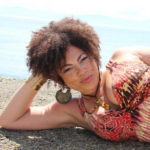
Devi Ward Erickson
Founder of The Institute of Authentic Tantra Education
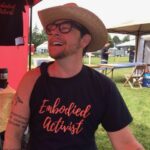
Dr. Liam Snowdon
Co-Founder: Somatic Sex Educators Association
Kimberly Ann Johnson
Author of The Call of the Wild & The Fourth Trimester
Dr. Ellen Heed
STREAM: Scar Tissue Remediation and Management
Keli Garza
Founder of Steamy Chick & The Peristeam Hydrotherapy Institute
Kris Gonzalez, L.Ac.
Founder of The Way of Yin
"Coocky" Tassanee Boonsom
Founder of Loi Kroh Traditional Thai Massage School

Dr. Betty Martin
The Wheel of Conset & Author: The Art of Receiving and Giving
About the Show
We explore the restoration of pleasure, the reclamation of sexual sovereignty, and the realization of our organic sexual wholeness. We engage with leading somatic therapists, sexologists & sexological bodyworkers, and holistic practitioners worldwide who provide practical wisdom from hands-on experiences of working with clients and their embodied sexuality. We invite a deep listening to the organic nature of the body, its sexual essence, and the bounty of wisdom embodied in its life force.
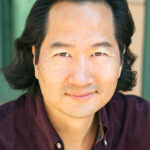
Rahi Chun
Creator: Somatic Sexual Wholeness
Rahi is fascinated by the intersection of sexuality, psychology, spirituality and their authentic embodiment. Based in Los Angeles, he is an avid traveler and loves exploring cultures, practices of embodiment, and healing modalities around the world.
